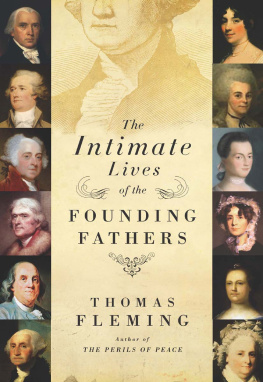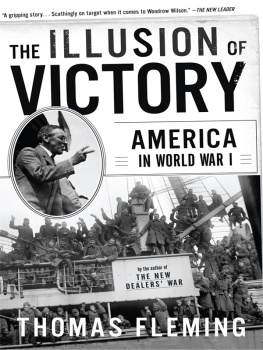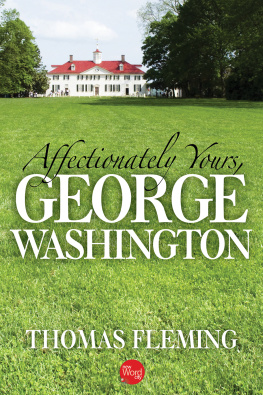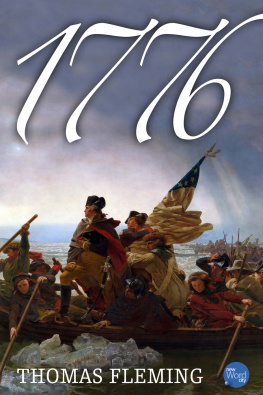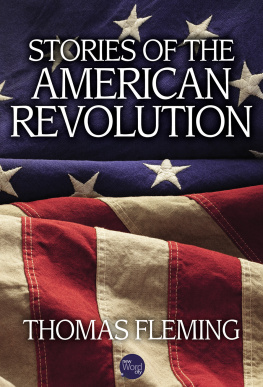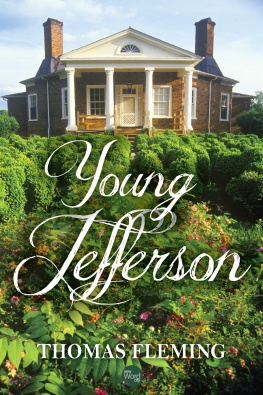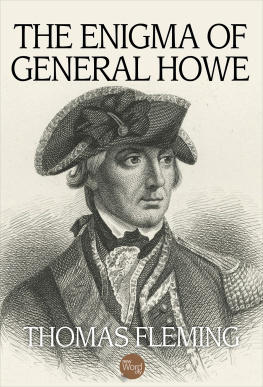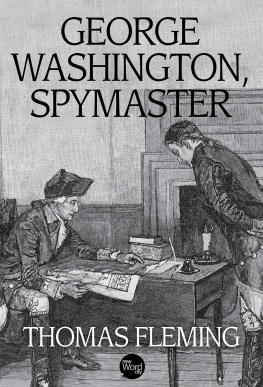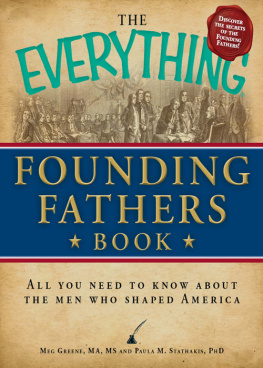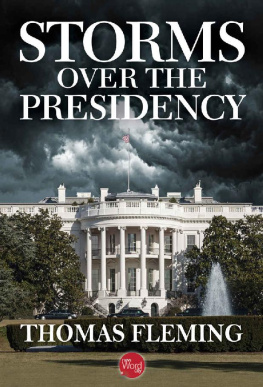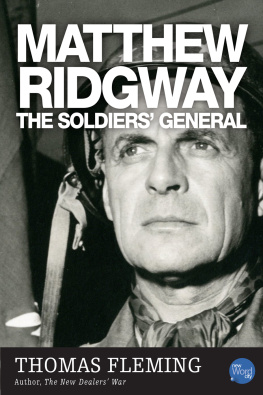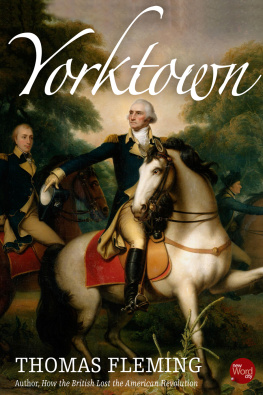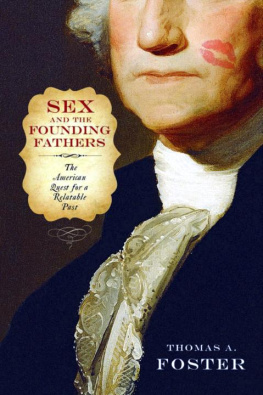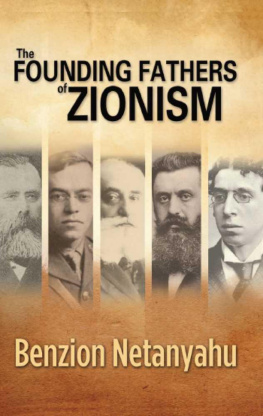Thomas Fleming - The Intimate Lives of the Founding Fathers
Here you can read online Thomas Fleming - The Intimate Lives of the Founding Fathers full text of the book (entire story) in english for free. Download pdf and epub, get meaning, cover and reviews about this ebook. year: 2009, publisher: HarperCollins, genre: Detective and thriller. Description of the work, (preface) as well as reviews are available. Best literature library LitArk.com created for fans of good reading and offers a wide selection of genres:
Romance novel
Science fiction
Adventure
Detective
Science
History
Home and family
Prose
Art
Politics
Computer
Non-fiction
Religion
Business
Children
Humor
Choose a favorite category and find really read worthwhile books. Enjoy immersion in the world of imagination, feel the emotions of the characters or learn something new for yourself, make an fascinating discovery.
- Book:The Intimate Lives of the Founding Fathers
- Author:
- Publisher:HarperCollins
- Genre:
- Year:2009
- Rating:3 / 5
- Favourites:Add to favourites
- Your mark:
- 60
- 1
- 2
- 3
- 4
- 5
The Intimate Lives of the Founding Fathers: summary, description and annotation
We offer to read an annotation, description, summary or preface (depends on what the author of the book "The Intimate Lives of the Founding Fathers" wrote himself). If you haven't found the necessary information about the book — write in the comments, we will try to find it.
The Intimate Lives of the Founding Fathers — read online for free the complete book (whole text) full work
Below is the text of the book, divided by pages. System saving the place of the last page read, allows you to conveniently read the book "The Intimate Lives of the Founding Fathers" online for free, without having to search again every time where you left off. Put a bookmark, and you can go to the page where you finished reading at any time.
Font size:
Interval:
Bookmark:

Katherine Dolan Fleming
Alice Mulcahey Fleming
Alice Fleming
Susan Riley
Sharon Kivisto Fleming
Kathryn Feder
Helen Fleming
Lucie Fleming
Pauline Fleming
Madeleine Fleming
The heart has its reasons,
of which the mind knows nothing.
BLAISE PASCAL
George Washington
Benjamin Franklin
John Adams
Alexander Hamilton
Thomas Jeffferson
James Madison
The Erosion of Jeffersons Image in the American Mind
A book of this dimension leaves the writer indebted to a wide range of people. I want to express my gratitude, first, to the numerous librarians who have assisted me, beginning with my early work on the American Revolution at Yale University. More recently, Lewis Daniels, the librarian at the Westbrook Public Library in the Connecticut town of the same name (where I spend my summers), has been especially helpful in tracking down books in the states research libraries for me. Equal gratitude goes to Mark Bartlett and his staff at the New York Society Library. Another thank you in this regard is warmly extended to W. Gregory Gallagher of the Century Association libraryand to the librarians of the New York Historical Society.
Special thanks must go to Mary Thompson, the research historian at Mount Vernon, who gave me several hours of her time during a visit. Also helpful was Washington scholar Peter Henriques, who generously shared with me some of his research. Several geneticists advised me on exploring the world of chromosomes and haplotypes, notably Kenneth Kidd, MD, of Yale University; Brian Ference, MD, formerly of Yale, now in private practice in Michigan; and Dr. Edwin Knights, who has written widely on the subject and practices in New Hampshire. Also helpful have been science writer Steven Corneliussen and his associates, biostatisticians William Blackwelder and David Douglas, who helped me probe the arcane world of probability.
Steven Bernstein, who is writing a history book of his own, found time to explore several collections in the Library of Congress and other libraries in Washington, DC. He also played a part in tracking down hitherto unknown facts about Samuel F. Wetmore, ghostwriter extraordinary. My son, Richard Fleming, with his computer skills and his access to the Columbia University Library, gave me significant aid on a variety of topics, ranging from Thomas Jefferson and Benjamin Franklin to Joseph Pulitzer. Another son, attorney Thomas J. Fleming, took time from his busy practice to advise me on the logic, legal and otherwise, of certain arguments in the text. Most helpful of all, with her mastery of computer research as well as her editorial experience, was the most important woman in my life, Alice Mulcahey Fleming. Also invaluable was the advice and counsel of my editor, Elisabeth Kallick Dyssegaard, as the manuscript evolved over the past two years.
T HOMAS F LEMING
W ith leaks and wandering emails, talk shows and tell-all aides, the private lives of todays politicians seem to have become public property. Whether this may eventually unravel the republic is frequently debated in the media. Not a few columnists and late-night gurus maintain that the best and brightest are now loath to enter politics.
Still, the number of politicians has not noticeably declined. Nor are we the first generation to take a more than passing interest in the personal lives of our elected leaders. Convinced that historical perspective might be the best answer to the Gtterdmmerung tone that the discussion sometimes takes, I decided to explore the roles of women in the lives of the first group of American politicians to win fameGeorge Washington, Benjamin Franklin, Alexander Hamilton, John Adams, Thomas Jefferson, and James Madison. Collectively, most historians agree, these are the founding fathers, the men who made the greatest contribution to the birth of the nation.
I was soon watching a young George Washington riven with desire for the wife of his close friend. I stood with Thomas Jefferson at the bedside of his dying wife, Martha Wayles, as he sobbed a fateful promise that he would never marry again. I saw a youthful Alexander Hamilton imbibe a toxic mix of fear and anger in his psyche when his headstrong mother banished his hapless father from her bed.
As one Jefferson biographer has remarked, every man carries on a lifelong dialogue with his mother, sometimes in his conscious mind, more often in his unconscious. Mothers have an especially strong influence in the shadowy realm of emotions. George Washington and Thomas Jefferson seem to have inherited their mothers temperaments. Some historians think John Adamss mother, Susanna Boylston Adams, was a manic depressive, who passed on the illness to her favorite son.
Although the women in these famous lives spoke 150 years before feminism entered the American vocabulary, their independent voices will surprise many people. The men and women of 1776 were far more candid and realistic about sexual desire and marital relationships than Americans of the twenty-first century realize. They gave serious thought to the ancient conflict between the sexes and talked and wrote about it in ways that still have relevance today.
This was evident from the novels they read and the stories that were printed in the newspapers. Samuel Richardsons Pamela was the most popular novel of the era. This story of a servant girls rise to wealth and power proved that virtue was rewarded and simultaneously delivered titillating descriptions of a young woman agonizing over sexual desire. When fifteen-year-old Betsy Hanford of Virginia married wealthy fifty-one-year-old John Cam, the local newspaper reported, She is to have a chariot and there is to be no padlock put upon her mind.
The women of 1776 had high expectations from marriage. They wanted not only affection but respect as persons. For a lucky few, these essentials could blend into near adoration. One Virginian began his letters to his wife, with My dearest life and declared that she blessed the earth with her presence. At the same time, essays and letters about unhappy marriages frequently appeared in the newspapers. One correspondent in the Virginia Gazette blamed these misfortunes on women who spent too much of a mans money on luxury, and on men who for the sake of beauty or wealth married a fury or an ideot [ sic ].
We will see how strongly the founders, especially those primary political rivals Alexander Hamilton and Thomas Jefferson, stressed the importance of a happy marriage in a mans life. Thanks to his five years in France as Americas ambassador, Jefferson was able to compare American and European marriage customs and found Americas far superior. Fidelity was virtually unknown among the French upper classes. Jefferson advised young Americans to abandon dreams of a grand tour, lest they acquire the Old Worlds attitude toward women.
Recent decades of scholarship in herstory have made us aware of a dark side of womens lives in the eighteenth century. Other than from private tutors, they had almost no educational opportunities. Divorce was seldom granted by the courts, and a womans property was legally controlled by her husband. On the eve of Americas independence, we will see protofeminist Abigail Adams protesting these inequalities in a famous letter to her husband, Johnand his less well-known, extremely unsatisfying reply.
A woman also had little control over her reproductive life. Pregnancy and childbirth were dangerous. Equally troubling was the awful infant mortality rate. The primitive medicine of the era made childhood almost as perilous. By late middle age, Martha Washington had lost all four of her children to death. Martha Wayles Jefferson lost four out of six children in ten years. Benjamin Franklins marriage was poisoned by his wifes bitterness over the death of their four-year-old son, Frankie, while his hated illegitimate half-brother, William, thrived.
Font size:
Interval:
Bookmark:
Similar books «The Intimate Lives of the Founding Fathers»
Look at similar books to The Intimate Lives of the Founding Fathers. We have selected literature similar in name and meaning in the hope of providing readers with more options to find new, interesting, not yet read works.
Discussion, reviews of the book The Intimate Lives of the Founding Fathers and just readers' own opinions. Leave your comments, write what you think about the work, its meaning or the main characters. Specify what exactly you liked and what you didn't like, and why you think so.

